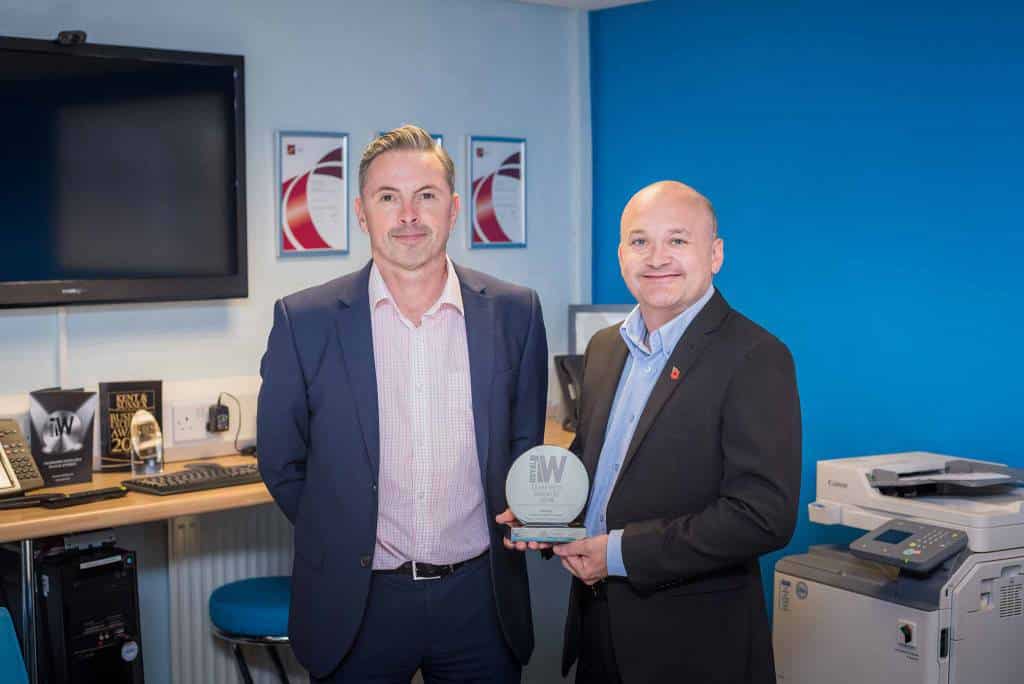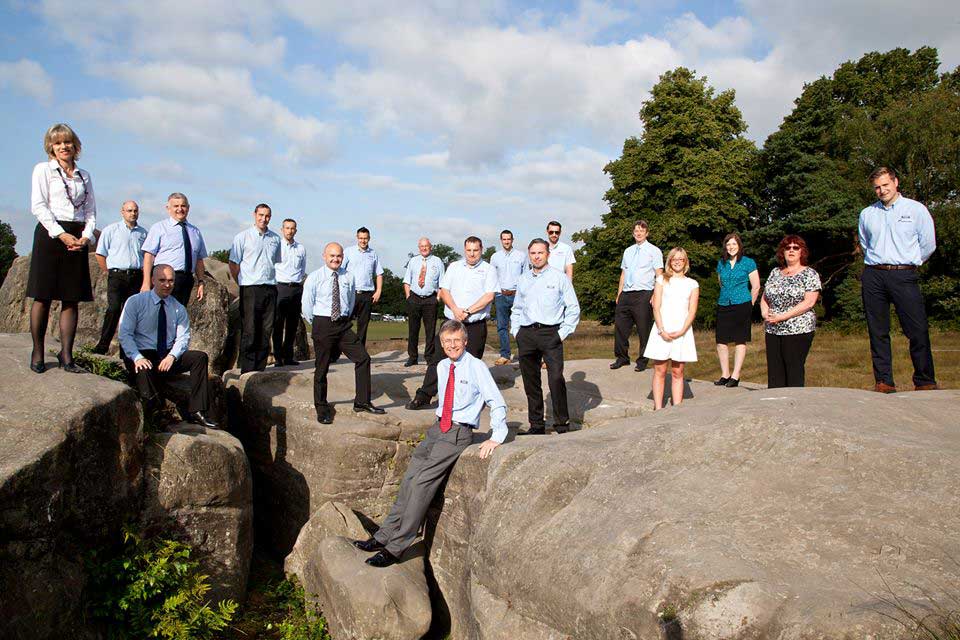How do companies stay relevant and profitable in an industry as fast moving as telecoms and IT?
Established for more than 25 years, the growth and continued success of First Office Systems can be put down to three things – evolution, diversification and customer service.
The last of these was recognised earlier in the year when the company won the Service Excellence category at the Royal Tunbridge Wells Business Awards.
In order to ensure their standards remain high, the office technology company carries out over 8,000 service calls a year and has conducted 1,500 surveys to gauge client satisfaction over the past decade.
“We wanted to do it big time. We didn’t just want to ring up a few people and hope for good results,” explained Sales Director Nick Brandon.
Data is carefully analysed from the responses of over 1,000 clients, and any areas which need to be improved are flagged up and worked upon.
Each survey is also audited by British Standards to lend it authenticity.
This is in response to increasingly high expectations from customers who, as technology has improved and competition has led to a wider choice of suppliers, expect their problems to be fixed in minutes.
“When I started, people would say ‘I will see you at the end of the week’, but now – particularly with telecoms – if you have not responded within half an hour they are on the phone calling you,” said Service Director Jason Seal. “They want the problem resolved too, not just a response.”
To meet this challenge the service department in the firm of 25 employees is ‘deliberately overstaffed’.
“Our wage bill is huge for service, but that is to ensure we can deliver when people are on annual leave or ill,” said Mr Seal.
Despite the large outgoings on service, which eat up a considerable chunk of the company’s £2.5million turnover, the belief is that in the long run it gives them the edge.
Mr Seal said: “We could make a lot more money by reducing the service, and it is not uncommon for us to lose a customer because someone is offering the same products for half the price.
“But three years later they come back, the reason being because they have been forced to wait three or four days for someone to fix their problems.
“Competitors can be cheaper than us by paying less in wages. We are not the cheapest at what we do but we believe we have the right amount of people to offer a good level of service.”
In addition to ensuring service levels are maintained, the company has diversified considerably since it was founded in 1991.
Initially it mainly dealt with office printers and photocopiers (an area of business described by the company as ‘document solutions’) as well as phones.
Since then it has grown to include IT, with a heavy emphasis on the internet, and even the physical design of office interiors.
Effectively, it now provides a one-stop shop for a business needing an office designed and fitted out from scratch, with all the necessary IT and office infrastructure installed as well as the services they may need later.
“With our skills in all four segments we can build something, cable it, lay carpet, install broadband connections, put in printers and provide IT – anything you can do for an office, other than construct the actual building,” Mr Seal explained.
The all-encompassing approach means they will provide multiple services to the same customer and find that these clients will stick with them when they roll out new services.
The company also ensures it is always keeping ahead of the latest changes in the industry.
“Technology is changing so fast that by the time you put something in, something new has come out.
“The first major change was the internet, which has impacted on everything. Now the cloud means companies are removing their need for in-house IT support,” said Mr Brandon.

These changes mean firms such as First Office are taking on the roles that were previously the preserve of IT departments in companies, by providing the same functions but at less cost.
It also means companies are not inconvenienced by having to deal with numerous providers, because First Office provides every service required such as telephone lines, mobile, internet connectivity and access to the cloud, as part of a single package.
“We buy these services and then resell them to the customers so that they only have to deal with one bill with everything on it.
“They also benefit by being able to come directly to us if there is a problem and we will sort it out,” explained Mr Brandon.
In effect, the firm buys line usage and bandwidth wholesale off the telecoms giants, particularly Gamma Telecom, and resells it at various mark-ups to customers, depending on what service they have selected.
“It is a big part of our business and we do profit from it, but of course we need a lot of staff to support and administer it,” said Mr Brandon.
“Because of how competitive this industry is, we are well aware that we have to recognise future trends and be smart about it, otherwise you are going to get left behind.
“Telecoms in particular has evolved massively in recent years, especially as it becomes increasingly intertwined with the internet. Mobile is becoming an increasingly important part of what we offer.”
This has led to the firm offering some very innovative products, such as Multinet, which it is in the process of rolling out.
This product involves a new sim card for a mobile, which effectively means the user will be almost guaranteed mobile signal, as it switches to different networks each time the signal gets weak.
Although such products give the company an edge, both directors believe that the industry is heading for a period of intense competition.
Mr Brandon said: “Those who we used to work with in the past are maybe less collaborative now.
“This is because companies specialised in different areas which were more defined. It was a case of ‘you’re a telecoms company, you’re an IT company and you’re a copier company’.
“But of course, the telecoms companies are now doing IT and the copier companies are also doing IT, so now we are all competing with each other rather than just collaborating.”
Mr Seal added: “The relationships are still there and you may get on, but fundamentally we are going to be treading on each other’s toes a lot more – it’s just the nature of the business.”
WHAT IS FIRST OFFICE SYSTEMS?
- First Office Systems was founded by John Donegan and Andy Brett in 1991 and has been located in Tunbridge Wells ever since.
- One year later they were joined by Jason Seal, with Nick Brandon joining in 1994 – both were promoted to their roles as Service Director and Sales Director, respectively, in 2011.
- They have built up the company organically from the start without any outside investment, taking on staff slowly over the years as and when it was safe and timely to do so.
Originally the company focused on telecommunications and document solutions and has since built up to office Interiors and IT divisions. - The company has now grown to employing over 25 staff and turning over in excess of £2.3million per annum-with partners including AVAYA, Canon, Gamma, Mitel and Samsung.
- There is currently a five-year plan in place to drive expansion through training, coaching, improved management and the embracing of new and emerging technologies.








